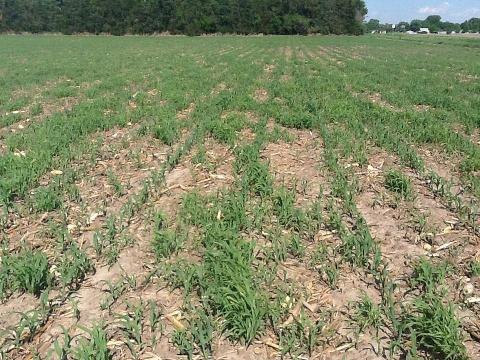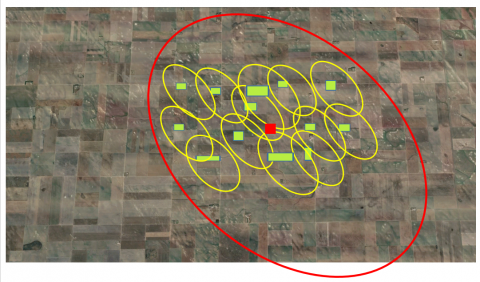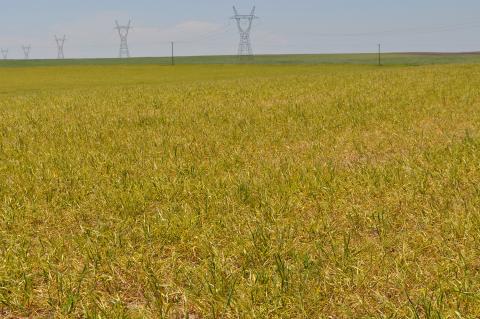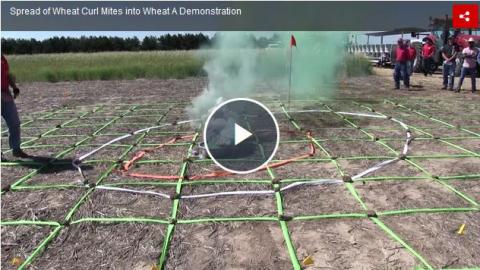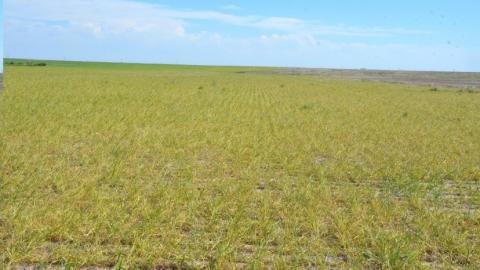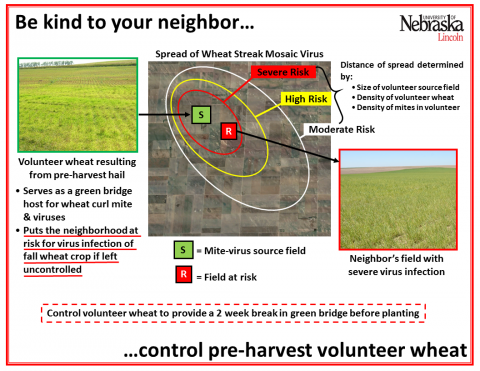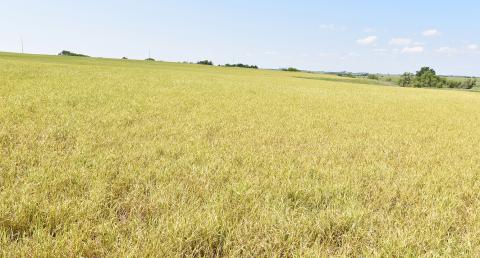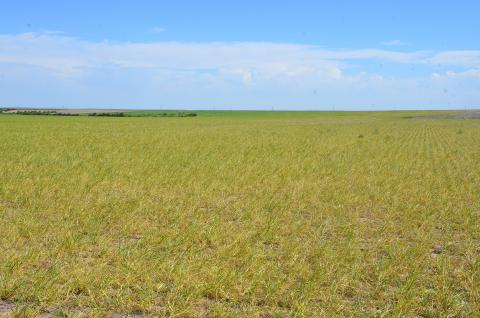Control of Roundup/Liberty Resistant Corn Volunteers in Enlist Corn
August 5, 2021
Results of a study evaluating Assure II for Roundup/Liberty-resistant corn volunteer control in Enlist corn and correct timing of application for use in corn-on-corn production systems.
Pre-Harvest Hail across Western Nebraska Necessitates Breaking the Green Bridge
August 30, 2019
This year late-season hailstorms led to increases in volunteer wheat that emerged shortly before wheat harvest. If left uncontrolled until wheat emergence in the fall, growers can expect a large buildup of mites and virus, leading to yield-robbing disease outbreaks next spring and summer.
Reasons You Will Want to Control Volunteer Wheat and Weeds in Wheat Stubble After Harvest
June 19, 2024
Volunteer wheat can provide the summer "green bridge" for the disease wheat streak mosaic and other virus diseases, as well as soil water loss that could translate into a substantial decrease in yields the following year.
Videos: Controlling the Wheat Curl Mite and Viruses in Winter Wheat
August 30, 2018
Four videos illustrate the spread of wheat curl mites among neighboring wheat fields and the importance of controlling these mites to curtail the development of three key viruses of winter wheat in Nebraska.
Risk Factors for Virus Disease Spread and Development in Winter Wheat
August 30, 2018
Managing the wheat curl mite is critical in managing the disease risk to winter wheat, particularly in central and western Nebraska. This article outlines key risk factors to manage.
Stopping the Spread of Wheat Streak Mosaic Virus
August 20, 2018
For wheat growers, one aspect of being a good neighbor is controlling volunteer wheat after harvest to stop wheat curl mites from moving into the new crop of wheat and transmitting viruses, particularly wheat streak mosaic virus. Volunteer wheat should be controlled in time to provide a two-week break in the green bridge.
Protect Future Wheat Yields: Control the Volunteer Green Bridge
August 2, 2017
Wheat streak mosaic virus (WSMV) problems have been extensive throughout the western Great Plains this year, significantly reducing the yield potential of many fields. A critical key in managing this threat in the next crop is elimination of volunteer wheat. Tillage or chemical weed control should occur at least one month before planting to allow host plants time to dry up and cease being a host.
Why Control of Volunteer Wheat is Critical to Protecting 2018 Yields
July 13, 2017
Timely control of volunteer wheat and other weeds is key to managing yield loss risk in your 2018 crop. Yield-limiting risk factors affected by weed control include wheat streak mosaic and other diseases, insects (wheat stem sawfly and disease vectors), moisture loss, and increased weed seed production.


